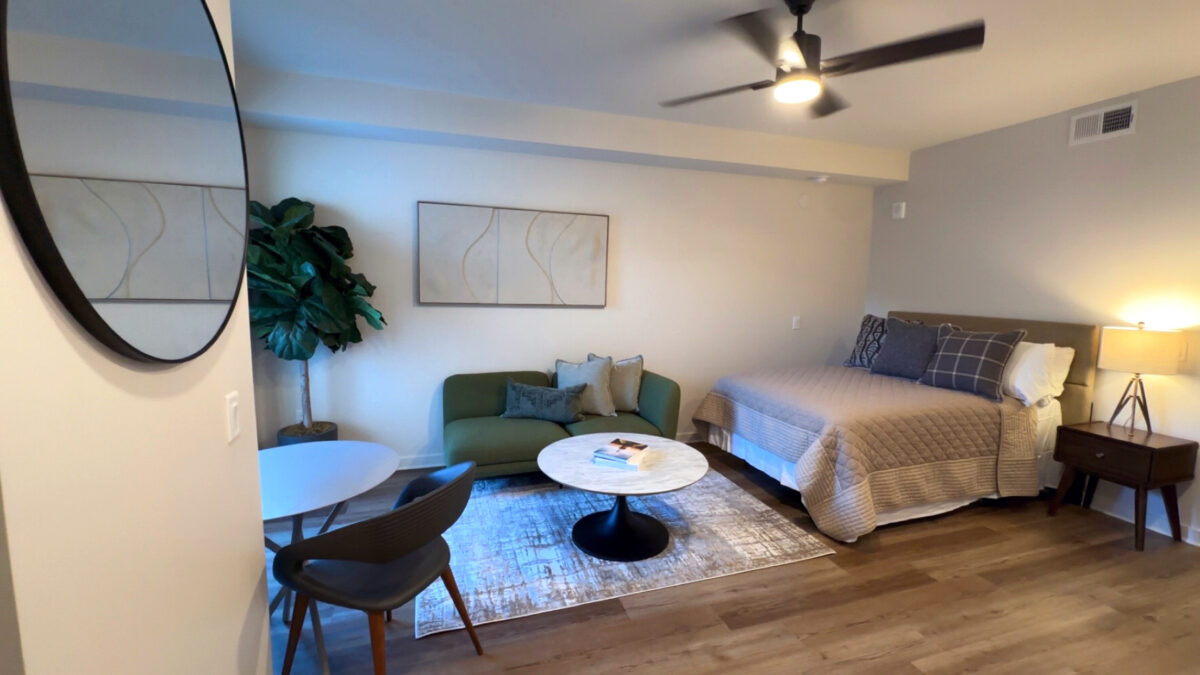Whether you visited Boston and fell in love, have a job offer, or will be moving for school, you’ve concluded: “I want to move to Boston.” Who can blame you? There’s a reason its nickname is “The Hub of the Universe.” The Hub is home to dozens of top universities, rich American history, excellent restaurants, and more.
This guide isn’t a tour brochure, though. It will cover the nitty gritty pros and cons of living in Boston, what you need to know to move like a local, and more. Grab your snow boots and start packing!
Living in Boston: Pros and Cons
Like anywhere else, living in Boston has its pros and cons. Here are a few things to consider before making your move.
Pro: Enjoy four distinct seasons.
While summer is hot and humid like most of the Atlantic Coast, spring and fall in Boston are magical. In the spring, the snow melts, and people spend warm afternoons in the Public Gardens and cool evenings on Seaport District patios.
Legendary New England autumns bookend the other side of summer. Fall sweeps in on a chilly breeze and turns the leaves countless shades of amber and yellow. Bust out the cozy sweater and enjoy a Harvard football game, a drive through the nearby mountains, or spend your weekend at one of the area’s many craft breweries.
Con: Boston has long, intense winters.
Boston’s unique location, jutting out into the North Atlantic Ocean further east than much of the country, makes it a target for turbulent winter weather. Nor’easters, a type of powerful winter storm, are known to pummel the city with freezing temperatures, strong winds, and blizzard conditions. While spring in the region is a fantastic treat to look forward to, you have to slog through a long, gray winter to get there!
Pro: There are ample educational opportunities.
There are 35 colleges and universities within the Boston, Massachusetts city limits, which doesn’t even include Harvard and MIT across the river in Cambridge. Boston also has specialized arts and communications schools like Emerson College and Berklee College of Music. Whatever your educational goals, there’s something for everyone, including lectures open to the public.
Con: There is a high cost of living.
Boston and neighboring Cambridge are consistently ranked as some of the most expensive cities in the United States. In fact, a recent study shows that a single person needs to earn a minimum of $78,752 per year after taxes to live comfortably in the Boston metropolitan area. Job opportunities are ample, but the job market competition can be stiff thanks to the city’s proximity to so many renowned higher education institutions.
Pro: Boston has a rich history.
A guide to moving to Boston would be incomplete without at least mentioning the city’s extensive history! The area has long been inhabited by Native Americans, and the state is even named after one of those tribes – Massachusetts. Then from the Plymouth colony in the 1600s to dozens of key Revolutionary War battles and events, walking through Boston is like a crash course in American history, a point of pride for many residents.
Con: Boston is a smaller city.
Boston is a hub for innovative companies, universities, and research. At the same time, the Boston metro area is home to 4.9 million people – less than a quarter of the population of the New York City metro area. Many residents view this as a pro because the city has a smaller-town feel with the benefits of big-city living. However, it can take adjusting to if you’re relocating from a sprawling global metropolis!
How to Move to Boston
If you’ve decided that the pros outweigh the cons and a Boston move is on the horizon, congratulations! Do you have your permit? Wait, what?! Keep reading to find out!
Take special considerations if you’re a student.
Boston has a plethora of colleges and universities, so many new residents are students. If you’re a student who will be living off-campus, consider your college’s location when decided where to live. It might seem like a good idea to live further away and save money, but if at all possible, stay closer to your campus. That way you’ll be able to immerse yourself in your school’s community and offerings without always thinking about your lengthy commute. Additionally, this allows you to better connect with your fellow students!
Another thing to consider for students is that there are special occupancy rules in the city of Boston regarding students. These laws state that no more than four undergraduate students may occupy the same apartment or home. Additionally, Boston regulations prevent more than five people from living in the same apartment to prevent overcrowding.
Next, you’ll need to consider if you’ll have a vehicle or not. Some areas require you to have your vehicle registered in that city or neighborhood in order to get a street parking permit, and registering your vehicle may be difficult if you’re not a resident of the city. Cycling infrastructure and public transportation are abundant in Boston, so it may be best to just leave the car at home!
Finally, think about how you’re going to furnish your apartment or house. If you plan to go home during the summer, or are only staying in the city temporarily, renting furniture can be a helpful solution.
Pick a neighborhood.
Boston has a diverse collection of neighborhoods and housing options, from brownstone-lined Back Bay to the triple-decker seas of Dorchester. When choosing a neighborhood in Boston, consider your budget, what areas you’ll spend the most time in, and how you plan to travel daily.
If downtown isn’t your speed or price range, consider one of Boston’s many colorful suburbs. Somerville, Brookline, and Quincy are popular nearby towns to consider if you don’t want to be in the city’s heart. These areas offer many of the benefits of the city, including service by MBTA trains and buses, while providing a break from the hustle and bustle.
Get a Boston moving permit.
A moving permit sounds ridiculous, but it’s pretty helpful. Much of the street parking in the city of Boston is permitted or metered, meaning you have to possess a resident permit to park there or feed a parking meter. Additionally, finding a moving-truck-sized spot close to the front of your building is almost impossible! Purchasing a street occupancy permit from the city allows you to park your vehicle without fear of towing and ensures you can block off an area large enough to fit the truck!
Start moving – carefully.
Once you have your truck and permit, remember: don’t drive down Storrow Drive. Despite being a main thoroughfare, the street has low bridges so frequently crashed into by moving trucks during the college move-in season that the phenomenon has a name – getting Storrowed.
If you choose to live in one of Boston’s historic homes and apartments, remember that closet space and hallways are often much smaller than in a modern home. That means your XL sofa may not make it up the stairs, and you may have to get creative to store your winter coats!
And finally, many of those historic homes predate central air conditioning. That’s right – a lot of Boston homes lack central air! Pick up a window unit air conditioner to beat the heat.
Don’t Get Storrowed. Get CORT Furniture Rental!
When it comes time to move to The Hub, let CORT handle your temporary furniture needs. CORT Furniture Rental can be an excellent option for folks who aren’t sure what life may look like in six to twelve months. Renting furniture gives you the freedom to move often without the hassle of moving heavy furniture multiple times.
Simply start with a furniture subscription package. Pick out the furniture, decide how long you need it, and schedule a delivery date. Our movers will deliver and install your furniture, so you don’t have to lift a finger. Then, walk into your new Boston home, kick back, and relax! When you’re done renting furniture, our crew will return and remove the furniture you no longer need. Make your move to Massachusetts simple with CORT Furniture Rental.







